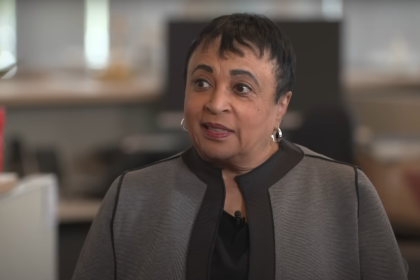Although the imaginary fiscal cliff was avoided, there are some big issues left for President Obama to deal with pertaining to the economy. The most pressing is the debt ceiling. It is possible that the U.S. will go through a technical default for a few days, although most anticipate that Congress will give in and vote to extend the debt ceiling temporarily. But what happens when the automatic sequesters kick in? Every African American should pay as much attention to this debate as they did to the election. Here are a few facts that African Americans need to understand about the issue.
1. Although unemployment benefits were renewed for another year under this month’s fiscal cliff deal, the benefits most likely will have to be renewed again next year. Since not being able to get full-time employment is associated with factors such as length being unemployed, age, education and worker type, his plans for funding worker training programs may have little effect.
2. If Obama or the Congress fails to accomplish a real long-term deal on the debt, deficit and debt ceiling, allowing the $1.2 trillion in automatic spending cuts kick in, along with a tax hike, it will disproportionately affect African Americans because budget cuts would likely slash jobs in state and local government where a disproportionately large number of African Americans make up a share of the public sector workforce. Historically, the higher number of African Americans working in public sector employment has meant higher rates of job loss due to the economic recession.
3. Although we avoided the so-called “cliff,” the outcome still leaves many middle- and working-class Americans, the working poor, and people of color in a precarious situation while we await the next deal, given that the payroll holiday was allowed to end. Not to mention that African Americans fortunate enough to have full-time employment, many could lose their tax credits for children, college and small business in the next deal.
4. African American unemployment is way above the quoted 14 percent mostly due to the weak U.S. economic recovery in state and local government hiring. More cut could send the entire country into another recession and African Americans will feel the resulting burden more than any other segment of the population. If automatic cuts go into effect, middle-class families would be hit hard with tax increases of at least $3,500 a year beginning in 2013.
5. The automatic cuts, due to what is called sequestration, will slash $1.2 trillion in spending over the next 10 years — costing millions of jobs and hurting health care, education, aid to state and local governments and other vital programs. Thus, it will not lead to the production of any new jobs and would make it even more difficult for middle-class African Americans, whose unemployment rate remains at crisis levels and who saw decades of middle-class economic gains wiped out by the recent recession.
6. Any cuts made to these programs would have a long-term impact on African Americans, especially in states like California, Ohio, Pennsylvania and New York who have some of the largest African American populations. A 5 percent cut to Medicaid could result in the potential loss of more than 28,000 jobs in each state. Meaning the additional job losses would do more harm to the African American unemployment rate.
















